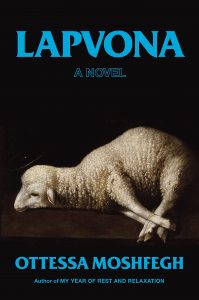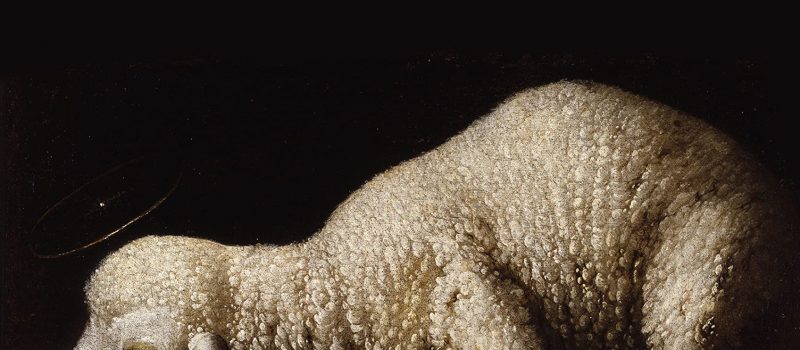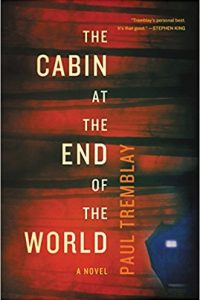Ian Mond Reviews Lapvona by Ottessa Moshfegh
 Lapvona, Ottessa Moshfegh (Jonathan Cape 978-0-59330-026-8, $27.00, 272pp, hc) June 2022.
Lapvona, Ottessa Moshfegh (Jonathan Cape 978-0-59330-026-8, $27.00, 272pp, hc) June 2022.
It shouldn’t surprise anyone who has been tracking Ottessa Moshfegh’s career that her fourth novel, Lapvona, takes place in a medieval fiefdom. Beginning with the publication of McGlue – an experimental novella following the dark and violent exploits of a 19th-century sailor – and then her debut (and break-out) novel, the Man Booker-shortlisted Eileen – a claustrophobic and noirish tale of alienation set in the 1960s – Moshfegh’s fiction has defied easy categorisation. An eclectic attitude extends to her most recent books, My Year of Rest and Relaxation and Death In Her Hands. The former – a lockdown novel before lockdowns were a thing – has the offbeat conceit of a woman who consumes a cornucopia of drugs in her bid to sleep through the year, while the latter presents as a murder mystery that morphs into a sad and uneasy story about old age, isolation, and loneliness. It makes sense then that Moshfegh’s latest book would be unlike anything preceding it, a novel about religion, greed, and self-worth set in a fictional European village during the Middle Ages with its fair share of depravity, flagellation, and cannibalism.
The one structural trait shared amongst Moshfegh’s previous novels is that they are told from the perspective of a single female protagonist. Lapvona breaks that mould with a narrative that shifts on a dime between multiple viewpoints. We begin with thirteen-year-old Marek, a small boy who has ‘‘grown crookedly’’ with his spine twisted, legs bowed, and skull misshapen. Marek lives alone with his father, Jude, a sheepherder who cares more for his flock than his son. Their only joint activity is Friday’s bout of self-flagellation, a devotional practice they enjoy a little too much. Back in the village, we meet Ina, an ancient, blind wet nurse ‘‘whose breasts had fed half the population’’ of Lapvona. The villagers are wary of her knowledge, her intrinsic, even supernatural, understanding of the natural world, and yet for Marek, she is the one person who shows him affection. Sitting astride all of this in his stone manor atop a hill is Villiam, Lapvona’s Lord and Governor. With a voracious appetite for food, sadism, and cruelty, he uses the Church and the bandits that skirt Lapvona’s border to ensure the villagers never hoard their crops or think of rebelling, even when a drought devastates the land. But when Villiam’s son and heir Jacob dies, falling from a mountain, startled by a rock thrown by Marek, the Governor decides to adopt the thirteen-year-old as payment for his family’s loss. This change in circumstances does little for Marek’s self-worth, which is further undermined when his mother – who Marek believed died in childbirth – re-emerges, apparently pregnant with the Christ Child.
Those who’ve read Moshfegh’s collection, Homesick for Another World, will know she has a predilection for rot and decay, for bodily fluids and physical disfigurement. While it’s a proclivity that’s less overt in her novels, the general misery and violence of the Middle Ages allows Moshfegh to indulge that aspect of her work. She sets the tone early with two vivid descriptions of Marek’s congenital deformities, one from the perspective of an omniscient narrator: ‘‘his spine twisted in the middle so that the right side of his rib cage protruded from his torso… ’’ and a second told from his father’s viewpoint: ‘‘Marek was ugly… [his] face had an unseemly disproportion; the boy’s forehead was high and veiny, his nose bulbous and skewed, his cheeks flat and pale, his lips thin, his chin a stub giving way to a neck that was wrinkled and soft, like a drape of skin over his throat.’’ Later, when Marek has moved into the Governor’s manor, his chambermaid, Lispeth, is sickened by ‘‘this deformed child’s’’ body.
Moshfegh’s treatment of Marek might smack of ableism, given how much is made of the boy’s infirmities. It wouldn’t be the first time that Moshfegh has been critiqued for obsessing over the physical imperfections of her characters. In Lapvona, it’s clear that Marek’s ‘‘ugliness’’ is in the eye of the beholder. For example, his touching relationship with Ina, whose wizened body comes under similar scrutiny – ‘‘her loose breasts were more like flaps… her nipples hung like little pebbles’’ – results in this beautiful, joyous moment where after she has done a little dance for Marek, and after he has sucked on Ina’s breasts, much as he did as a babe, they both fall into a peaceful sleep. (As an aside, Ina is easily one of Moshfegh’s best creations, a complex, otherworldly, and calculating character who, at one point, replaces her eyes with those of a horse). What becomes clear is that the novel’s true conception of ugliness isn’t physical but spiritual. It begins with Jude, who sexually abuses and beats the living daylights out of his son to the extent that Marek comes to enjoy the pain, even seeks it out from Jude in the hope it will bring him closer ‘‘to his father’s love and pity.’’ Then there’s Villiam and his abuse of God and the Church via his weak-willed factotum Father Barnabas, all to maintain control of Lapvona. It results in a spiritually corrupt individual who cares little for the death of his child, regularly demeans the staff, and, most shocking of all, hoards water and supplies during a drought, leaving the villagers to resort to cannibalism.
I’m aware that Moshfegh’s work is an acquired taste. If you’ve previously bounced off her earlier novels, Lapvona is unlikely to change your mind. But for those, like myself, who appreciate the excesses of Moshfegh’s fiction, her forensic examination of our flaws and misanthropic tendencies, then Lapvona certainly hits the mark.
Ian Mond loves to talk about books. For eight years he co-hosted a book podcast, The Writer and the Critic, with Kirstyn McDermott. Recently he has revived his blog, The Hysterical Hamster, and is again posting mostly vulgar reviews on an eclectic range of literary and genre novels. You can also follow Ian on Twitter (@Mondyboy) or contact him at mondyboy74@gmail.com.
This review and more like it in the June 2022 issue of Locus.
 While you are here, please take a moment to support Locus with a one-time or recurring donation. We rely on reader donations to keep the magazine and site going, and would like to keep the site paywall free, but WE NEED YOUR FINANCIAL SUPPORT to continue quality coverage of the science fiction and fantasy field.
While you are here, please take a moment to support Locus with a one-time or recurring donation. We rely on reader donations to keep the magazine and site going, and would like to keep the site paywall free, but WE NEED YOUR FINANCIAL SUPPORT to continue quality coverage of the science fiction and fantasy field.
©Locus Magazine. Copyrighted material may not be republished without permission of LSFF.






